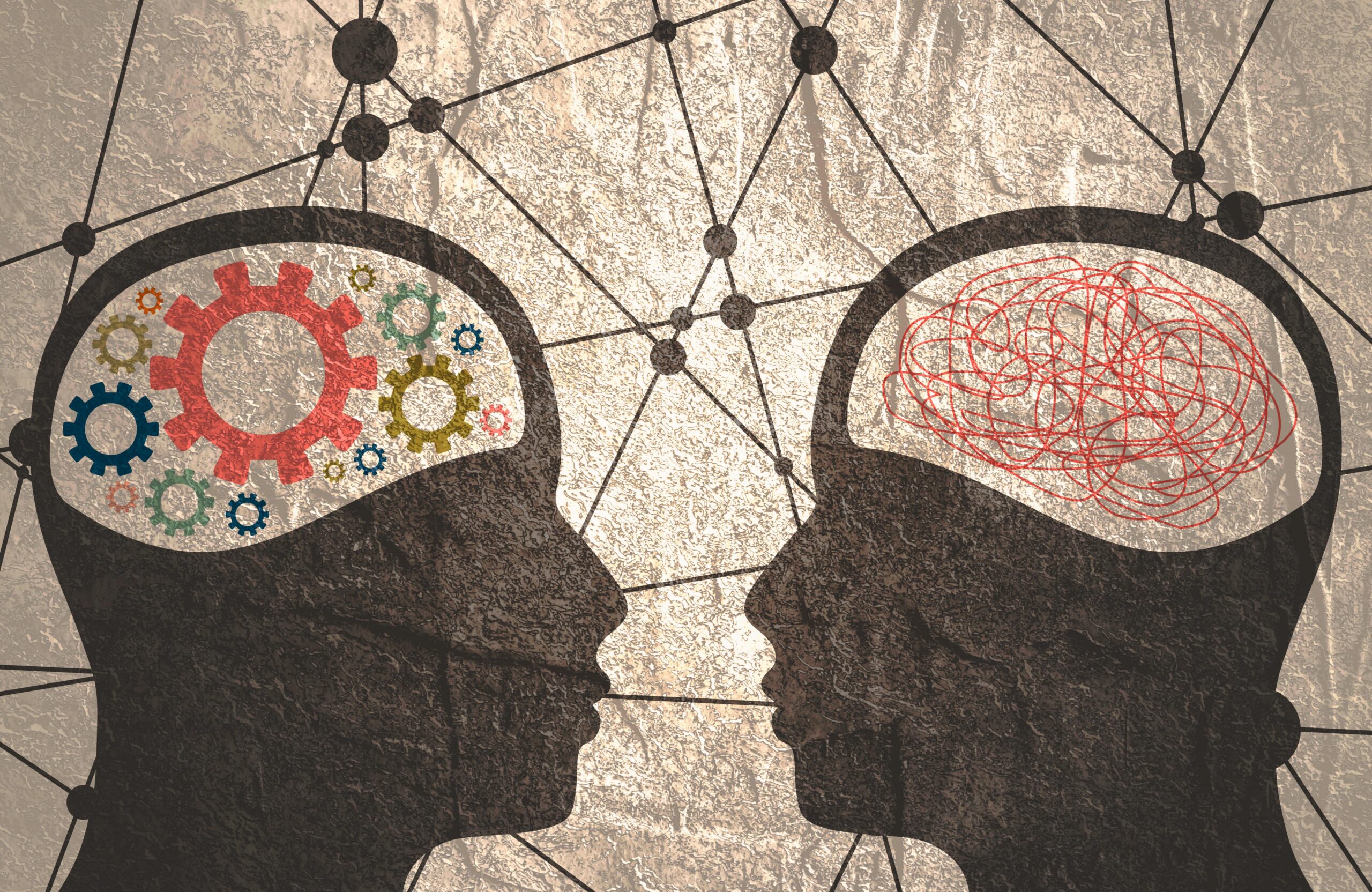Do you have both a mental health disorder and a problem abusing drugs or alcohol? You may have heard two different names for this condition and wondered, “What is the difference between dual diagnosis vs co-occurring disorders?” Regardless of which name you use, living with this condition drastically impacts how well a person does when it comes to living a happy, healthy life. New View Wellness in Atlanta offers highly effective, multi-disciplinary treatment for dual diagnosis. We believe in getting to know each person we treat and designing a program that fits their exact needs.
Dual Diagnosis vs Co-Occurring Disorders: What’s the Difference?
When someone has both a mental health disorder and a substance use disorder, it can be called by two different names. This means that there isn’t a real difference between the terms dual diagnosis vs co-occurring disorders. Dual diagnosis is the more up-to-date term while co-occurring disorders used to be used more often years ago.
Some clinicians differentiate between the two terms in that they view a dual diagnosis as two separate conditions that developed separately. They consider a co-occurring disorder to be when one condition influenced the other. This might mean treating one disorder only, rather than using the more modern approach of providing care for both the addiction and the mental illness simultaneously.
Regardless of the terminology used, the fact remains that a large number of people deal with a dual diagnosis. In fact, a study from the year 2020 showed that 17 million adults in the U.S. had both a mental illness and a substance use disorder. This means a real need for treatment for dual diagnosis exists.
How Do the Two Parts of Dual Diagnosis Affect Each Other?
Whether it’s referred to as dual diagnosis vs co-occurring disorders, mental illness and addiction can influence each other in negative ways. For example, someone who suffers from depression may turn to abusing alcohol or drugs to try to soothe their symptoms. As well, someone who abuses stimulant drugs may end up developing symptoms of an anxiety disorder, thus complicating their condition.
On the other hand, a positive influence comes about when a person is in treatment for dual diagnosis. For example, despite being marketed as a way to feel great, alcohol is actually a depressant. Someone who lives with depression and stops drinking alcohol often finds that their depressive symptoms begin to lessen. Conversely, someone who begins to process and overcome trauma from their past can feel much less of a need to get drunk or high to deal with residual feelings.
It makes sense for someone with a dual diagnosis to seek treatment at a center that treats this condition, rather than tackling one disorder at a time. A dual diagnosis program provides help for mental health disorders and substance use disorders at the same time. This provides the benefit of a person spending less time and money getting the proper help they deserve. Additionally, they can heal at a faster pace.
How is Dual Diagnosis Treated?
With both dual diagnosis vs co-occurring disorders, treatment involves a two-pronged approach. The first is the use of different types of therapies that help improve the symptoms of poor mental health. In addition, the same therapy modalities assist in teaching people to overcome their addictions to alcohol and drugs. Common types of therapy used to treat dual diagnosis and co-occurring disorders include:
- Individual therapy
- Psychotherapy
- Family therapy
- Dialectical behavioral therapy (DBT)
- Acceptance and commitment therapy (ACT)
- Genetic testing
- Psychiatry + Med management
- Brain mapping
The second approach to treatment is the use of prescription medications. They can ease withdrawal symptoms experienced when someone stops drinking or using drugs, and also help treat the symptoms of various mental health disorders.
What are the Most Common Dual Diagnoses?
People can have any number of combinations of mental health disorders and substance use disorders. The most common types of mental illnesses include:
- Depression
- Bipolar disorder
- Anxiety disorders
- Schizophrenia
- Post-traumatic stress disorder (PTSD)
- Other trauma-based illnesses
- Disassociate disorder
- Attention-deficit/hyperactivity disorder (ADHD)
- Borderline personality disorder
- Obsessive-compulsive disorder (OCD)
The most common types of addiction include:
- Alcohol
- Cocaine
- Crack
- Heroin
- Amphetamines
- Methamphetamines
- Hallucinogens
- Inhalants
- Ketamine
- Marijuana
- MDMA
- Prescription drugs
Does Insurance Cover Treatment for Dual Diagnosis?
Insurance companies understand that both addictions and mental health disorders are dangerous diseases that require professional treatment. For this reason, most insurance companies offer some kind of coverage for dual diagnosis. This can include outpatient or residential care and incorporates therapy sessions, prescription medications, and more. Anyone interested in getting treatment for dual diagnosis should verify your insurance with us first. This helps us understand options and any out-of-pocket costs they may incur.
Find Dual Diagnosis Treatment Centers in Georgia Today!
Are you tired of the impact poor mental health and a substance use disorder have on your life? Whether your doctor or therapist has told you that you have dual diagnosis vs co-occurring disorders, we can help. New View Wellness in Atlanta offers a specialized program to treat dual diagnosis in adults. We use a combination of evidence-based therapies and prescription medications to help you achieve better mental health and also overcome your addiction to drugs or alcohol.
Are you ready to get the help you deserve for your dual diagnosis? Visit our admissions page now and connect with us.

